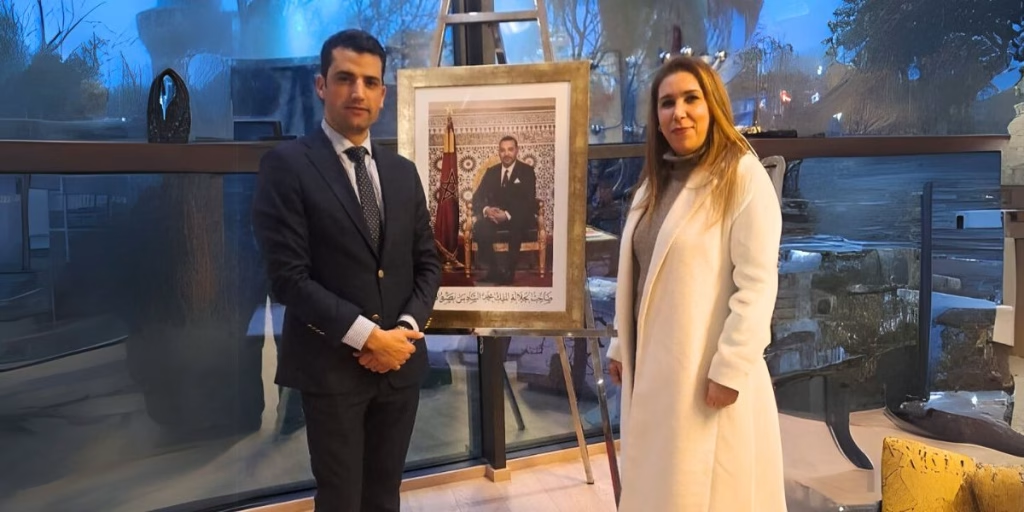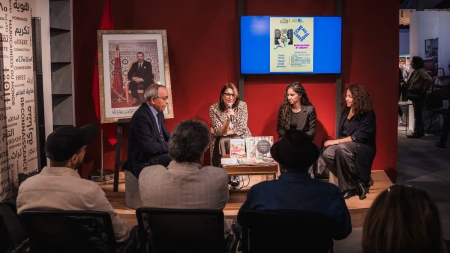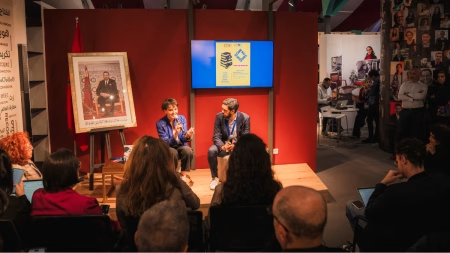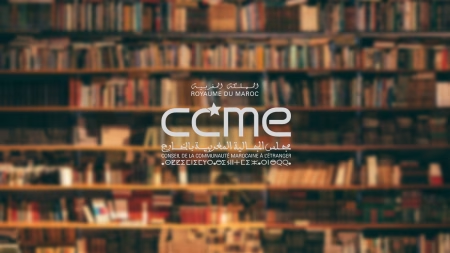Four Questions to Mrs. Rahma El Basraoui, President of “Casa Marruecos” and Migrant Rights Advocate, Who Shares the Situation and Challenges Faced by Moroccans in Valencia. Interview.
“I call on the CCME to specifically address ‘Maurophobia’ by promoting research projects on hate crimes targeting our community.”
“The low representation of our community in political and media spheres makes defending our rights more complex.”
“Our associative network is fragile, with little or no funding, limiting our capacity to act.”
1. Could you introduce yourself and tell us about your association?
My name is Rahma El Basraoui, president of the Coordination of Moroccan Immigrants in the Valencian Community, better known as “Casa Marruecos.” I am a lawyer specializing in immigration law and a human rights advocate, particularly for the rights of migrants and the Moroccan community. With extensive experience in the social and associative sector, I have worked as an intercultural mediator in several municipalities within the migrant reception office, Pangea. I have also been appointed as an expert at the Valencian Observatory for Equal Treatment, Non-Discrimination, and Hate Crime Prevention under the Generalitat Valenciana.
I have been living in Spain for 22 years, starting my journey as a PhD student in international law at the Faculty of Law in Valencia in 2002.
Casa Marruecos, founded in 2019, aims primarily to address the challenges faced by Moroccan migrants in the region while promoting their integration into Valencian society. We also strive to preserve our community’s cultural identity. More broadly, we fight against all forms of intolerance and discrimination, including racism, xenophobia, Maurophobia, and Islamophobia, emphasizing human rights and gender equality in all our actions.
We provide information, legal counseling, and support services, including health-related assistance. Additionally, we encourage participation in cultural and political events, promoting Moroccan culture and traditions to create an environment where everyone can thrive.
2. On October 28, the Valencian Community was hit by torrential rains caused by a DANA (a phenomenon of atmospheric depression), resulting in deadly floods. Your association intervened on the ground. Could you tell us about the measures taken to assist the victims?
From the earliest hours, Casa Marruecos mobilized to assist Moroccan families affected by the DANA, with many of our members directly impacted. We collaborated with the Consulate of the Kingdom of Morocco to search for missing persons. Subsequently, we were among the first organizations to provide support to affected communities.
Moroccan women organized to prepare and distribute 300 to 400 hot meals daily, thanks to the generous support of the Marrakech restaurant and numerous donations. This aid reached several municipalities and was positively recognized by residents and local, national, and international media. This solidarity work also helped counter misinformation and rumors targeting the Moroccan population during the crisis. In response to racist attacks, we took solidarity actions, offering an inspiring example of resilience.
In partnership with Asesoría Yara, we initiated a process to regularize the status of young Moroccans affected by the DANA. We are currently working with nearly 40 young people to support them in this essential process aimed at enhancing their stability and security. Additionally, several social organizations have called for exceptional regularization of undocumented migrants affected by the DANA. We are awaiting a response from the authorities while continuing our support work.
3. How would you describe the current situation of Moroccans affected by the floods?
The Moroccan community living in areas affected by the DANA faces numerous challenges. These primarily rural areas are home to Moroccan workers employed in citrus farming, many of whom live there due to the availability of social or low-cost housing.
To date, eight deaths and one disappearance have been confirmed among Moroccans. Families living on the ground floors have lost all their belongings, and businesses such as butcher shops, bakeries, and grocery stores have been destroyed, along with some mosques.
Although some have begun repairs and families have received donations of furniture and appliances, the situation remains critical. Everyone is awaiting official assistance to restore their homes and businesses. The Generalitat Valenciana has approved direct aid of €6,000 per damaged household to cover essential needs. Additionally, the Spanish government has allocated a €14.3 billion aid plan for reconstruction.
However, full recovery will take time, and the Moroccan community continues to struggle to regain normalcy.
4. With 25 years of experience as an activist, what are the current challenges facing the Moroccan community, and how can they be addressed?
The Moroccan community in the Valencian Community faces several major challenges: legal and professional precarity, difficulty accessing decent housing, administrative barriers related to municipal registration, healthcare, and education. Added to these are intergenerational conflicts and growing social discrimination, particularly against women and unaccompanied minors.
Institutional racism and “Maurophobia” manifest through police checks, arbitrary arrests, placements in Immigration Detention Centers (CIE), and deportations, which heavily affect the Moroccan community.
At Casa Marruecos, we work in partnership with other organizations and public administrations to reduce these obstacles. However, the Moroccan community remains the most discriminated against and struggles with integration. Even highly qualified individuals face these challenges.
The underrepresentation of our community in political and media spheres makes defending our rights more difficult, particularly against racist attacks or fake news spread by far-right groups. Our associative network is fragile, with little or no funding, limiting our capacity to act. Strengthening this network through better training and appropriate resources is essential.
I call on the CCME to specifically address “Maurophobia” by promoting research projects on hate crimes targeting our community. Casa Marruecos also aspires to have dedicated facilities and funding to continue effectively defending the rights of Moroccans in the region.









